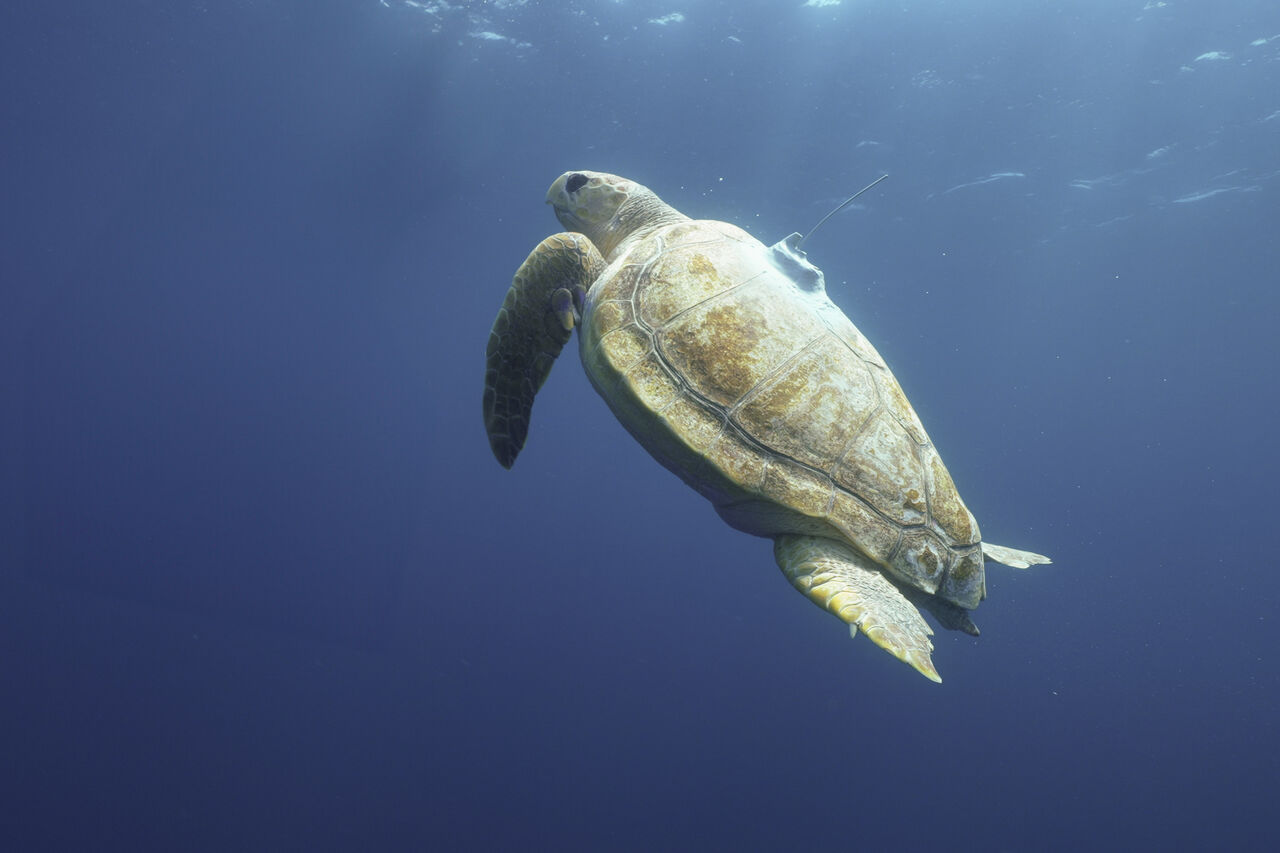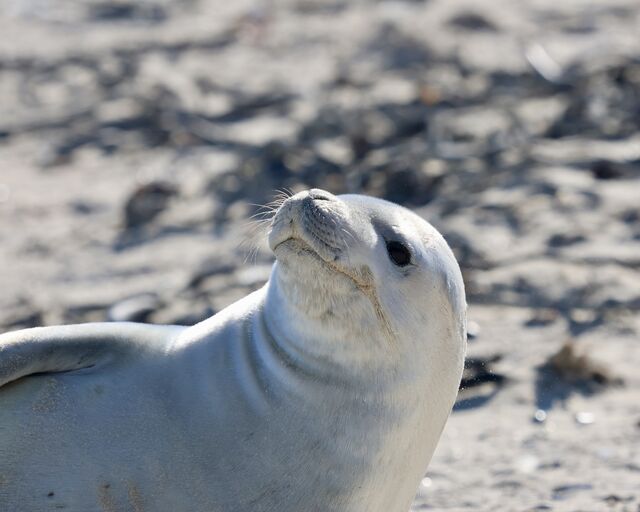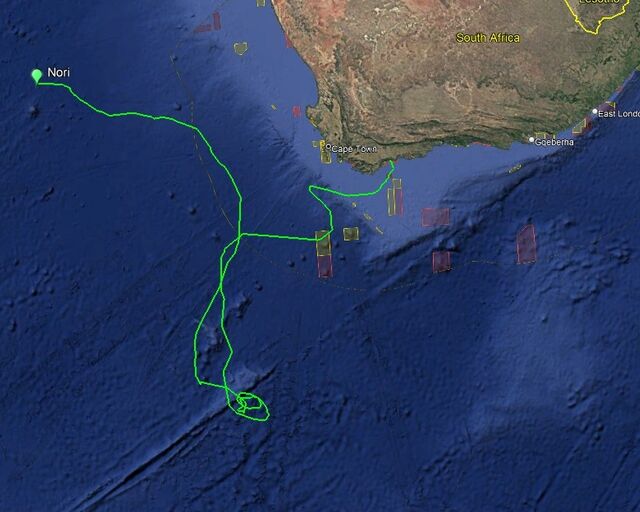Tracking our turtles: Nobomvu's explorations
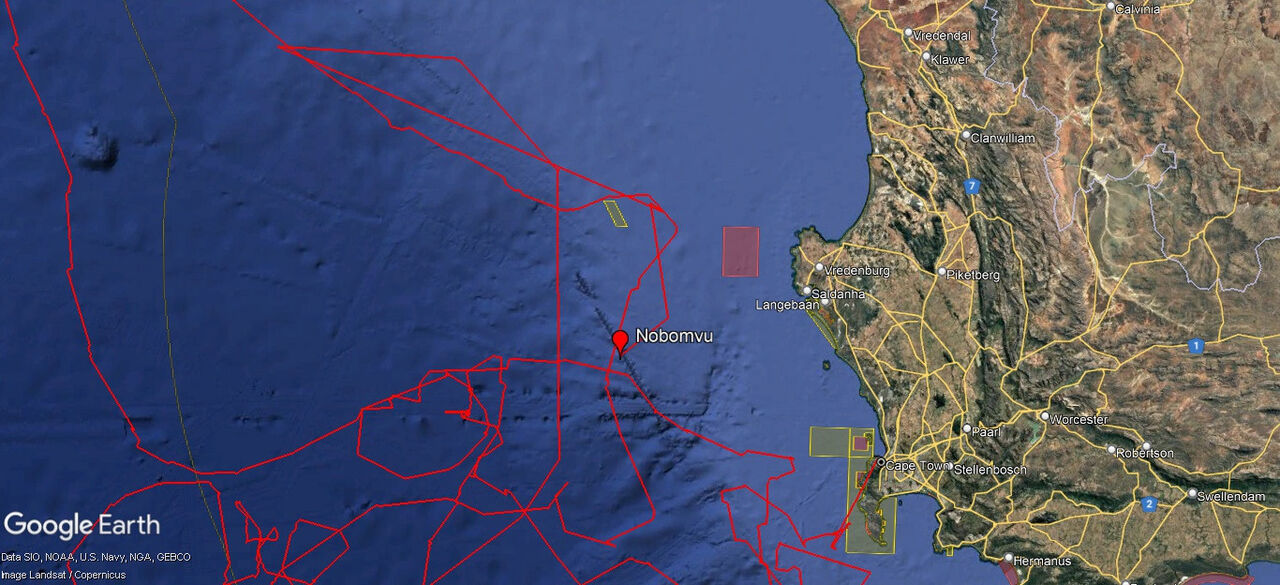
It’s been 543 days since Nobomvu, the loggerhead turtle, was released into the warm waters off Cape Point. Fondly known to the Turtle Conservation Centre team as our “Red Lady”, Nobomvu has had a fascinating journey since her release.
In the last 30 days of travel, Nobomvu has covered an impressive 460km, averaging around 15km a day. Throughout this time, she’s stuck close to the edge of productive, phytoplankton-rich waters. These areas offer plentiful food and favourable oceanic conditions. It appears that Nobomvu is navigating using her natural turtle instinct while letting the ocean currents guide her. Sometimes she goes with the flow, other times she moves against it.
Water temperatures along Nobomvu’s route have held steady at around 20°C, which is within a comfortable range. Remember that turtles’ body temperatures are affected by the ambient temperatures, so warmer waters mean Nobomvu is warm, too! What’s especially interesting about her location is that she is currently moving south along the Namaqua continental shelf, a deep stretch of ocean shaped by sediment flowing from the Orange River. This area has a wide, sandy shelf with strong upwelling – again, this results in abundant, nutrient-rich water for Nobomvu to feast. The water depth is about 1 200km.
Our Turtle Conservation Centre has recently observed a change in the frequency of Nobomvu’s transmissions – the intervals between signals are getting longer. This is a sign that her satellite tag’s battery is starting to run low or that biofouling (a buildup of marine growth on the tag) is interfering with its ability to transmit properly.
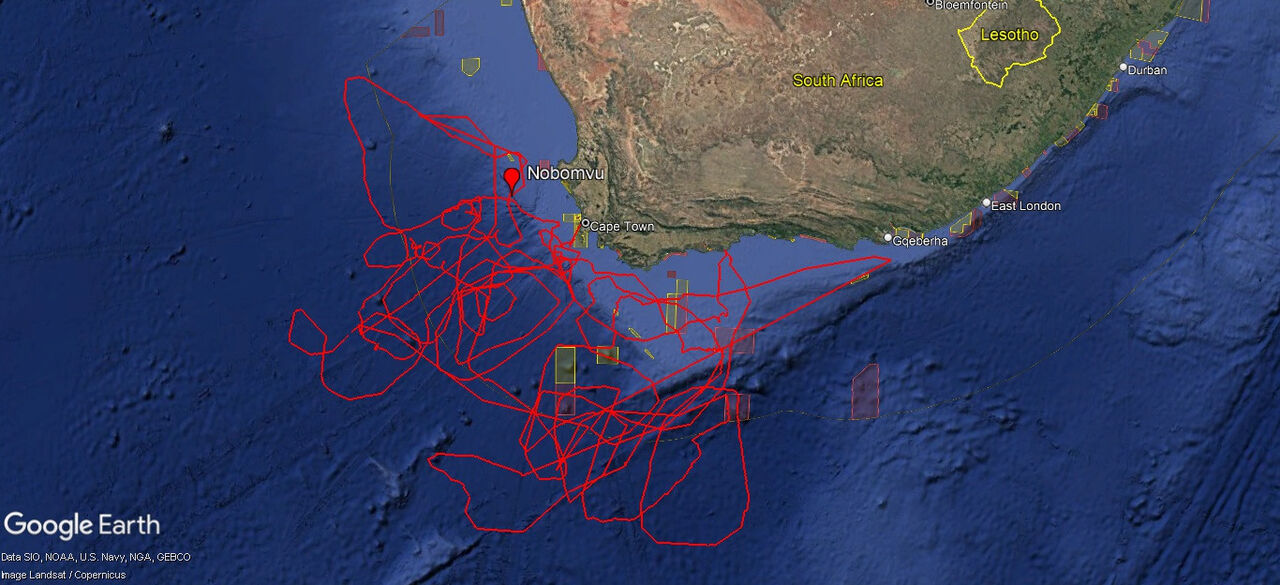
We’ve been tracking Nobomvu for a year and a half now – 18 months of watching her journey unfold across the South Atlantic Ocean. As her tag transmissions become less frequent, we find ourselves wondering how much longer we’ll be able to follow along. However long that may be, it’s already been a remarkable glimpse into the post-rehabilitation life of our special Red Lady.
Related News
Sign up to our Newsletter
Receive monthly news, online courses and conservation programmes.
